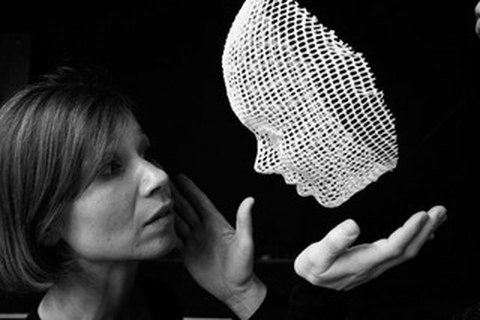Mar 15, 2023
The day my computer thought it had more personality than me
The research project "The Answering Machine" explores the interplay between artificial intelligence and human improvisational talent and uses the stage as its laboratory. The first public performance will take place on March 25, 2023 at the Theater of the TU Dresden, DIE BÜHNE.
Alexa, Linda, Siri, TOBi or Hugo - these names stand for well-known applications of artificial intelligence (AI) that help us in our everyday lives by means of speech, providing information or simply entertainment, the so-called chatbots. They are smart, creative and can even be funny. But how do we humans perceive this kind of artificial intelligence? What consciousness, perhaps even feelings, do we interpret into these applications?
These and other questions are to be answered by an interdisciplinary team from computational linguistics, theater studies, media studies and psychology in the project "The Answering Machine". To this end, the researchers want to investigate the human-machine interaction in a real artistic-scientific laboratory: on stage. In a four-year series of experiments and performances, humans will interact with chatbots on stage and in the lab. The goal of the team is to identify emotional, behavioral and cognitive patterns, to understand in detail the conditions of AI humanization.
After a year of developing the artistic part of the project under the direction of Dr. Gunter Lösel from the Zurich University of the Arts, the time has come: On March 25, 2023, the first public performance of the project will be shown under the title "The Day My Computer Thought It Had More Personality Than Me" at the theater of the TU Dresden, DIE BÜHNE. Improvisational actors will enter into dialogue with a chatbot, resulting in surprising dialogues and scenes of high synthetic emotionality, completely improvised, also involving the audience.
Stefan Scherbaum, Professor for Methods of Psychology and Cognitive Modeling at Technische Universität Dresden, is investigating the psychological aspects behind human-machine interaction, including in particular the effect on the audience, as part of the experiment: "The project fits into our line of research on social flexibility and at the same time provides new exciting impulses, also in view of the constantly evolving reality that keeps presenting us with new opportunities and at the same time challenges with innovations such as most recently ChatGPT." At the March 25 launch, Stefan Scherbaum will guide as moderator through the evening while his team observes audience reactions. "Of course, we are already excited about the artistic aspect of human-machine interaction and are also looking forward to good entertainment."
In addition to Stefan Scherbaum and Gunter Lösel, computer linguist Prof. Jonas Kuhn from the University of Stuttgart and media scientist Prof. Susanne Marschall from the University of Tübingen are involved in the project. The actors are Marcus König and Lorenz Fischer from the Dresden improvisation theater groups "Yes-Oder-Nie!" and "Freie Spielkultur" and Nicole Erichsen from "Stupid Lovers" from Karlsruhe. The three other public performances within the project will take place in the cities of the project partners.
More information: https://die-buehne.tu-dresden.de/spielplan/der-tag-an-dem-mein-computer-dachte-er-haette-mehr-persoenlichkeit-als-ich/
Due to the great interest in the performance, only a few remaining tickets are available at the box office.
Contact
Stefan Scherbaum
Chair for Methods of Psychology and Cognitive Modeling
TU Dresden
+49 351 463 33258

